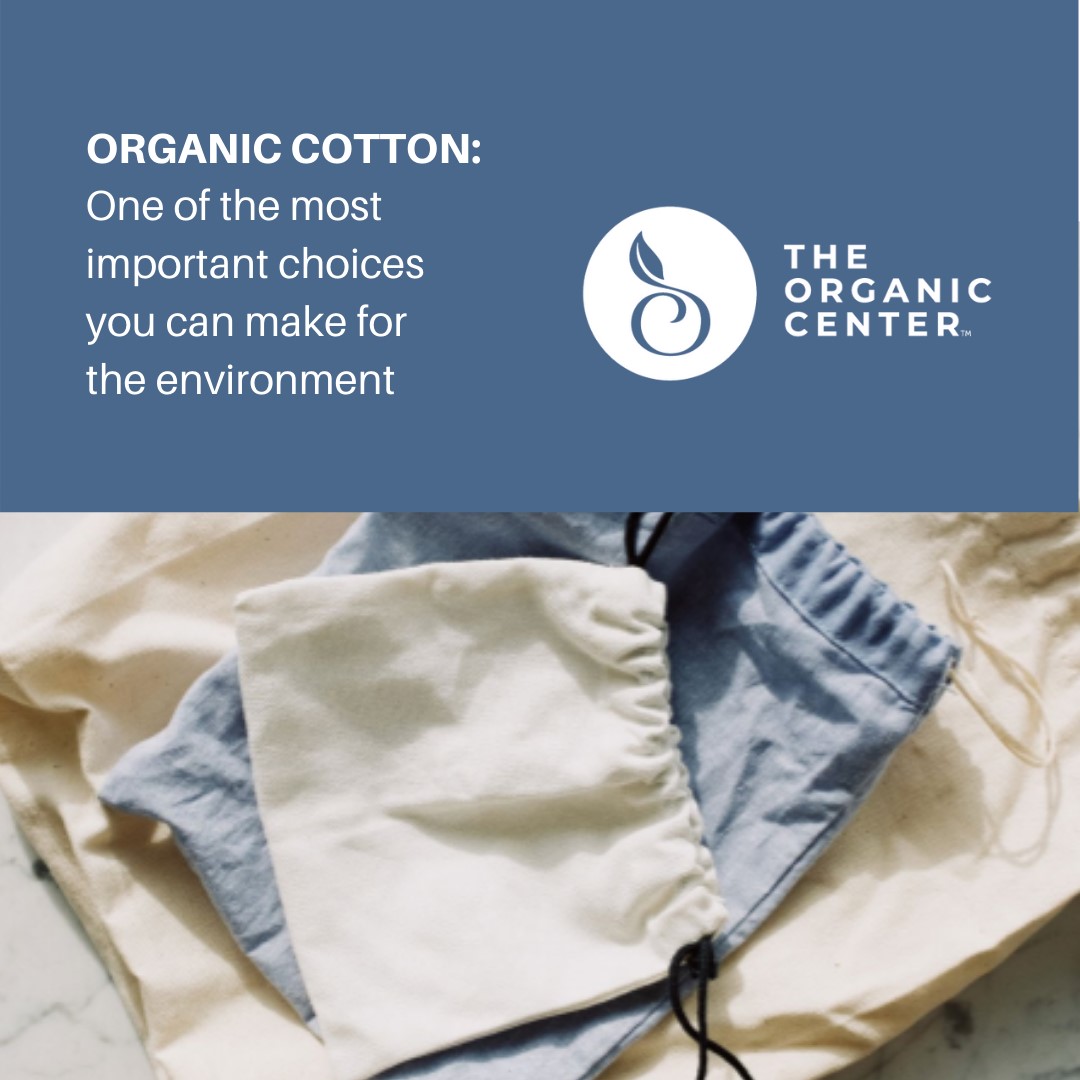New research reveals measurable benefits of organic cotton production

Published: February 8, 2021
Category: Organic News
Study by Iowa State University with The Organic Center finds important environmental benefits
Conventional cotton is a chemically intensive crop with serious consequences for the Earth’s air, water, soil, and climate—as well as the health of farm workers and cotton processors. By contrast, organic cotton is grown, processed, dyed, and finished with methods that focus on building ecosystem health, and reducing the use of toxic pesticides, synthetic fertilizers and hazardous processing chemicals.
While a broad array of research has shown that organic production can provide significant environmental benefits, few studies have looked at the specific practices used by organic cotton growers and processors in the United States to document real-world impacts of those practices. Now, a new research collaboration between The Organic Center and Iowa State University, and funded by the Organic Trade Association’s Fiber Council, fills this gap by surveying organic cotton producers and processors to better understand the specific approaches and methods used in organic cotton production and processing, and the environmental impacts of those techniques. The Organic Center highlights the main findings here.
The findings, now published in the scientific journal Renewable Agriculture and Food Systems, cover some of the most recent research on the environmental benefits of organic cotton production, showing the importance of avoiding synthetic chemicals, the role of organic cotton when it comes to climate change mitigation, and the benefits of organic cotton to water and biodiversity. It highlights the beneficial practices used in organic cotton, from building soil health on the farm to using non-toxic methods of textile processing.
“This research is the first of its kind to not only highlight the environmental benefits of organic cotton production and processing, but also provides direct insight into grower and processor experiences through survey responses and interviews,” said professor and extension organic specialist Kathleen Delate at Iowa State University, who led the research.
Among the findings:
- Conventional cotton relies heavily on GMO herbicide-tolerant and Bt-cotton for managing pests. However, because GMOs are banned in organic production, organic farmers rely on a healthy ecosystem to manage pests, and use soil and biodiversity building techniques such as crop rotations, resistant and tolerant varieties, and fostering beneficial insects.
- Forty percent of surveyed farmers showed an increase in beneficial organisms on their farms since adopting organic practices.
- Instead of harmful synthetic pesticides and fertilizers, organic cotton farmers use cover crops like clover, rye, and other crops as rotational crops to manage soil nutrition, soilborne diseases, and pests.
- Organic soil tends to be healthier—which can lead to climate change mitigation and boost the ability to adapt to extreme weather events such as drought and floods.
- Organic management can reduce water consumption in cotton. Many organic operations practice “dryland production” without irrigation. Of the organic growers surveyed in the study who use irrigation, many use technologies to reduce water use, such as drip irrigation.
- Instead of toxic synthetic defoliants (which are used in conventional production), organic producers use natural methods to mature cotton bolls, such as decreasing water availability.
- When it comes to cotton processing, organic processors certified to the Global Organic Textile Standards (GOTS) avoid the environmental footprint of toxic processing aids that are commonly used in conventional processing.
Source: Organic Center
To view full report, visit:
https://www.organic-center.org/organic-cotton-one-most-important-choices-you-can-make-environment
Organic & Non-GMO Insights February 2021








